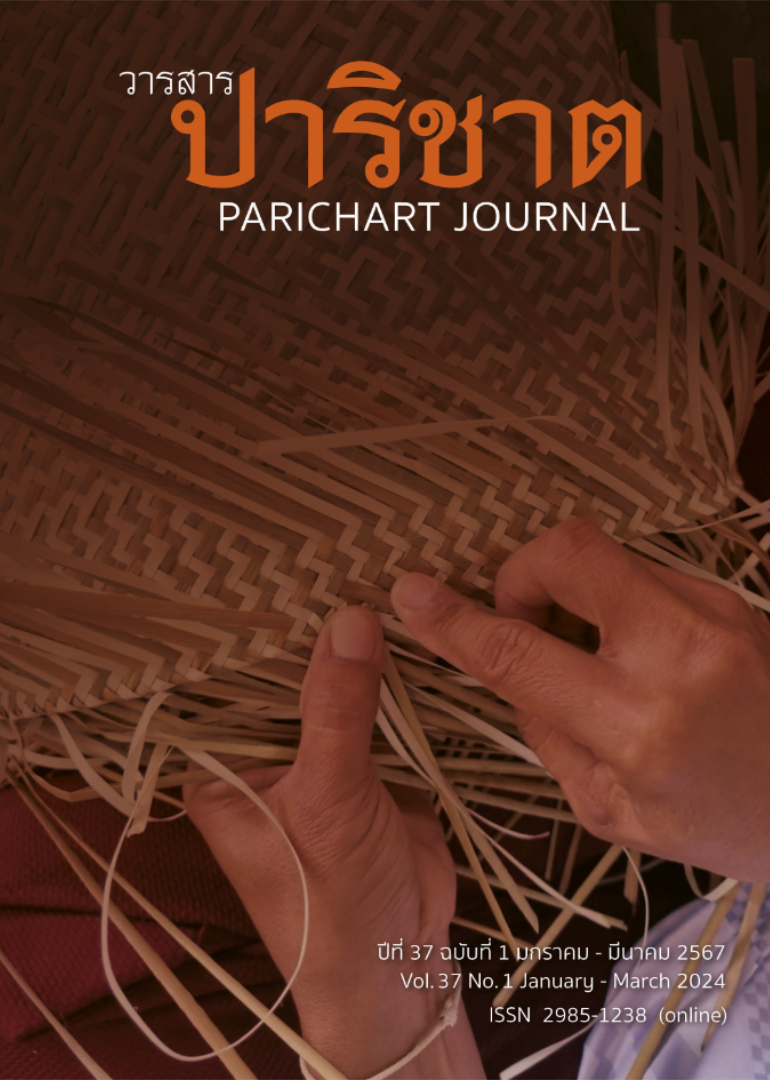Five Forces Models Affecting Small Hotel Entrepreneurs in Muang Districts of Southern Border Provinces
Main Article Content
Abstract
The study of “Five Forces Models Affecting Small Hotel Entrepreneurs in Muang Districts of Southern Border Provinces” aimed at 1) studying the economic and social backgrounds business development concepts 2) analyzing the five forces models. This study is qualitative research. The sample group consisted of small hotel business operators in Mueang Districts in the three southern border provinces. Divided into the hotels in Mueang District, Pattani Province, Mueang District, Yala Province, and Mueang District, Narathiwat Province. By interviewing Thai-Chinese entrepreneurs/Thai-Buddhist entrepreneurs/ Thai-Muslim entrepreneurs, there were 9 entrepreneurs. The research was conducted using semi-structured interviews. The research results showed that 1) concerning the economic and social backgrounds as well as the business development concepts, entrepreneurs were local people. Most of them were self-proprietorships or worked for family business as they perceive business opportunities and then wished to expand their family's 2) The five forces could be classified into 1) threats from new competitors, social media technology, price, capital, newness of competing hotels and policies to stimulate the economy of the government, 2) threats from substitutes in terms of price, novelty, and legal gaps, 3) bargaining power of customers room rates at the same level, enabling them to choose that they mainly like 4) high bargaining power of the sellers causing the problem of price gouging occurred have low bargaining power 5) quite high competition in the industry in terms of the number of competitors as well as online channels and funds.
Article Details

This work is licensed under a Creative Commons Attribution-NonCommercial-NoDerivatives 4.0 International License.
References
Institute for the Development of Civilian Government Officials in the Southern Border Provinces. (2021). Education in the development of southern border provinces B.E. 2020-2022. https://www.sbpac.go.th/?page_id=34190
Department of Provincial Administration. (2020, July 5). Hotel registration in the southern region. https://multi.dopa.go.th/omd3/main/webindex
Department of Tourism. (2021, May 25). Thai tourism standards. http://tts.dot.go.th/knowledge/standard/thai
Lorpraditphong, N. (2006). Customer satisfaction survey manual. Prachumthong Printing Group Co., Ltd.
Neuman, W. L. (2004). Basics of social research: Qualitative and quantitative approaches. Pearson.
Chatchakul, N. (2012). Tourism industry. Chulalongkorn Publishing House.
Soipet, S. (2010). Hotel management. Khon Kaen University.
Solomon, M. R., Marshall, G. W., & Stuart, E. W. (2008). Marketing real people, real choices. Pearson Education.
Solomon, M.R. (2011). Consumer behavior: Buying, having and being (10th ed.). Allyn & Bacon.
Henderson, J. C. (2010). Sharia-compliant hotels. Tourism and Hospitality Research, 10(3), 246-254.
Thongsawang, K. (2011). Impact of the insurgency in 3 southern provinces on hotel real estate projects in Hat Yai district [Master’s thesis, Thammasat University]. TU Digital Collections. https://digital.library.tu.ac.th/tu_dc/frontend/Info/item/dc:120577?fbclid=IwAR1JIBZOwTh9PIe7O54e3mOMQlwLLgTGygbmfGbieTQAgYjQJuxpFGsnqKw
Manasuwan, P. (2011). Strategies for creating competitive advantage in the construction material distribution business. in area 3 Southern Border Provinces (Yala, Pattani, Narathiwat). Yala Rajabhat University.
Weerapriyakun, P. (2012). Status and situation of real estate in the three southern border provinces. Thailand Research Fund (TRF).
Khemthong, S. (2016). Management and marketing strategies for the hotel business. Sukhothai Thammathirat Open University Press.


